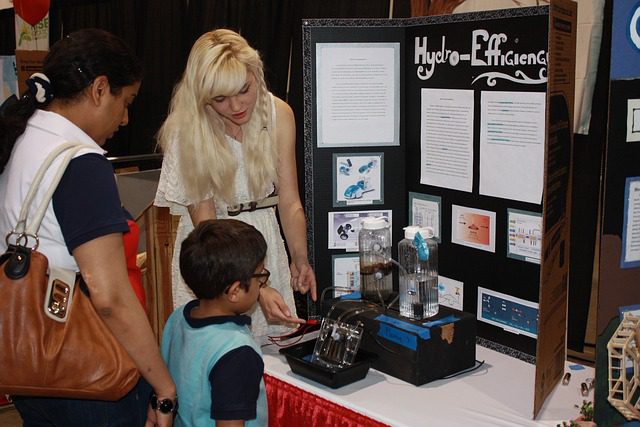 Who Cares What Scientists Are Doing?
Who Cares What Scientists Are Doing?
I care about what scientists are doing. A number of other people do, too. I get just a little shiver down my spine when I hear it is Science Fair season. Weird, but true! I love science! I love to see all the interesting and useful new research that is going on in the science community. Our library has some amazing books and videos of just that subject. In looking for juicy topics I promise you will be rewarded for your effort. There will also be an event on November 10th you should check out: https://lclsonline.org/events/get-ready-for-the-science-fair-2/
Scientists follow a very specific method devised to understand the world around us. We study and test the observations we see in the nature in order to better understand the visible and invisible processes going on. In many cases, we use the research to predict and take advantage of natural processes for our own benefit.
The knowledge we arrive at with science does require some commitment though. There are procedures and rules to be followed to make science reliable and accurate. They are laid out in the scientific method. The scientific method is the heart of all science research.
The scientific method is much more than a goofy term to “turn a random assertion into science.” Merriam dictionary defines it as “principles and procedures for the systematic pursuit of knowledge involving the recognition and formulation of a problem, the collection of data through observation and experiment, and the formulation and testing of hypotheses.” The idea is to pose a question, have easily reproducible and verifiable data.
And just to keep you honest, your peer are encouraged to challenge your data and assertions.
If you want a Science Fair project to stick out, follow scientific method as closely as possible. Use it to plan out your experiment and note the results. There have been many instructions and standards determined necessary in scientific method. They can be your guidelines. It’s kind of a language only spoken by scientists. It regulates research by weeding out the unprovable statements. It shows how the statement can be proven.
I want to emphasize the library’s efforts toward a new push to expose students to STEM (an acronym short for Science, Technology, Engineering and Math). Several federal agencies have come together to initiate programs to encourage our kids into the fields of study that are falling behind in American schools. Better trained people in these fields will lead to better employment, more innovation and stronger economy. But simpler than that, science is inspiring, exciting and adventurous.
Doesn’t it rock that research is affecting all manner of subjects and people all over the world in real time? With the World Wide Web at our fingertips, we have unimaginable facts at our disposal. We are unlimited in the application of the research.
If we were relaying excitement and adventure to our kids about science, they might study more, graduate, and hopefully attend college. We need to teach them how awesome it is to see a new constellation. This can be as simple as turning off the porch light and looking up at night or driving out of town to watch stars.
Don’t be intimidated just because you can’t answer all the questions a child has about a topic you are trying to bring to light. The internet has so many avenues to explore. Science Friday podcasts on NPR is my weekly fix. I just discovered a website that explains if a drop of water hitting a leaf is caught by the leaf or allowed to continue dropping to the ground. http://www.sciencefriday.com/educational-resources/hydrophobicity-will-the-drop-stop-or-roll/ That’s another perfect opportunity to set up your first experiment. How can I learn more about this new subject I have just discovered? Do the research together and determine if the observation you saw was what you expected. Viola!, you are a scientist!
I remember lying on our trampoline in sleeping bags explaining to my younger brother how vast the universe is and how the galaxy is only part of the universe. He started asking questions. In fact, I had a hard time stopping him in order to sleep. When I didn’t have an answer, I would tell him that is another field that needs to be studied.
Show your kids how happy it makes you to see a new species of bird. Seeing a Dipper in Crow Creek for the first time is more likely to engage our kids if we made a big deal of it. Your enthusiasm is more influence than a lecture. What kid hasn’t laid and watched the clouds? Explain that people study the clouds and that there are names for all the different kinds. I still am amazed at watching ants using a type of highway in and underneath the grass. It’s cool to see they often use the same rules of the road as we do. What is something you see and are intrigued by that you could share with a youngster?
~Billie Jo Hopka
